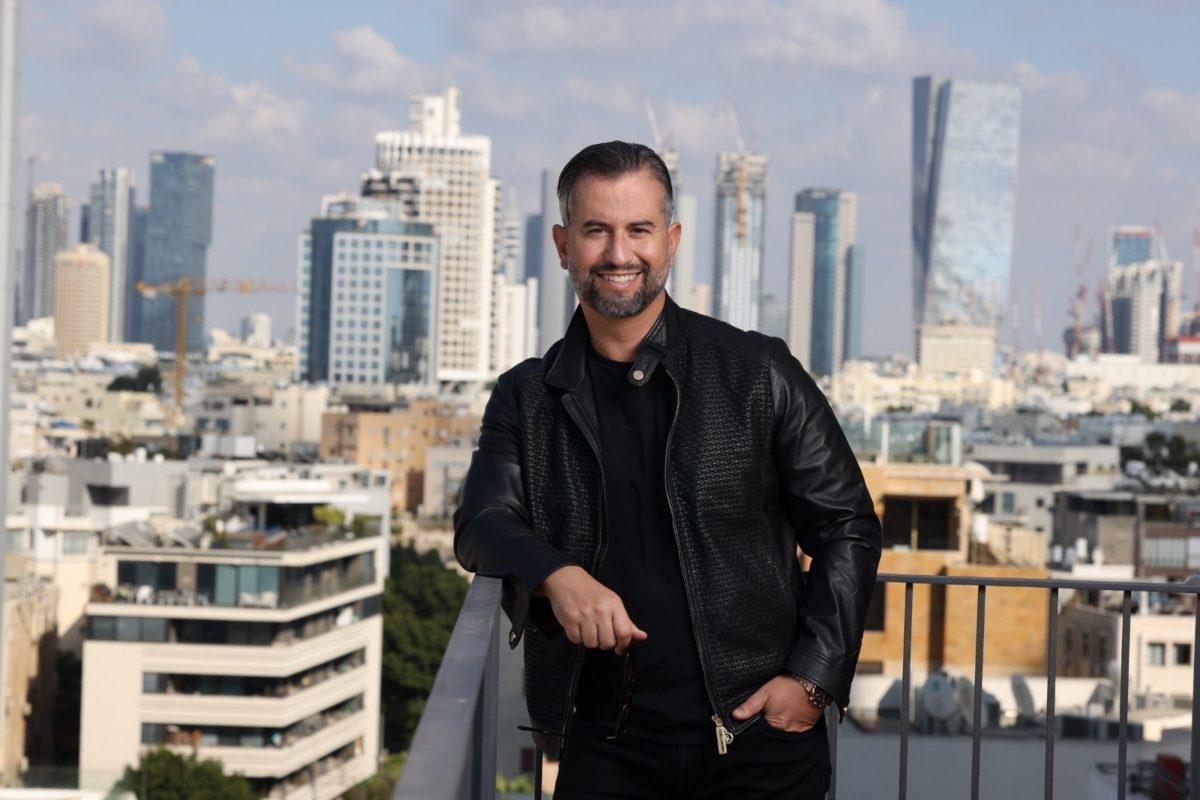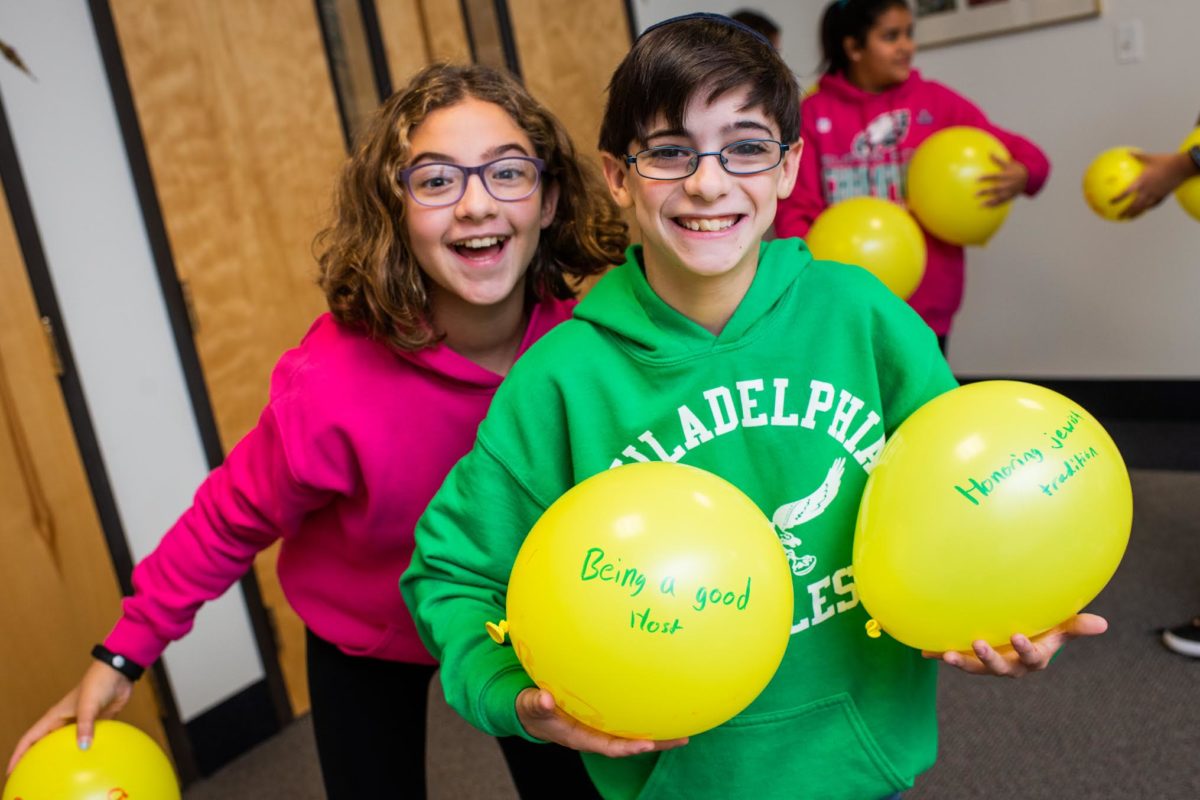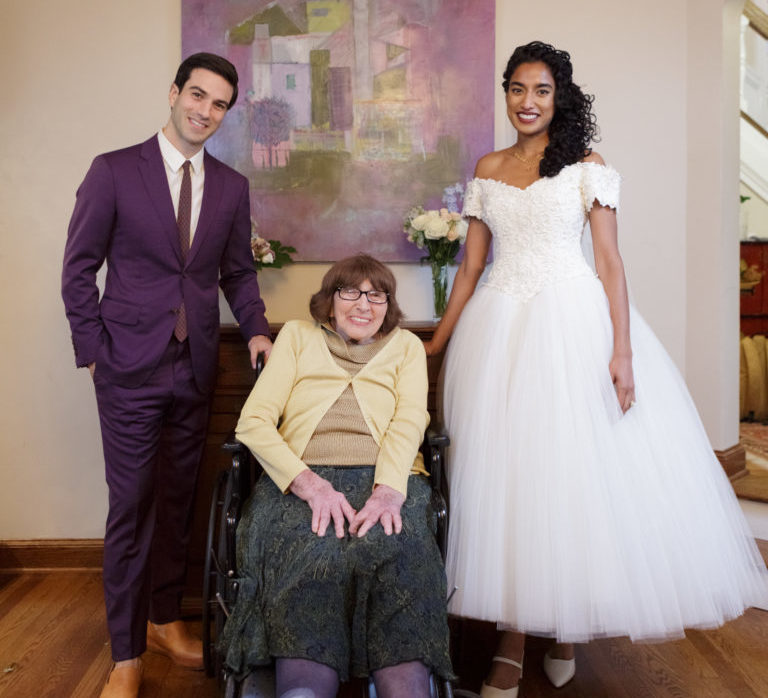Your Daily Phil: An Australian-Israeli entrepreneur on ‘breaking the mold’ in philanthropy + JWI’s new domestic violence collective
Good Wednesday morning!
About 75% of the families who pulled their children out of public school and enrolled them in Jewish day school due to the COVID-19 pandemic say they want to stay, according to a survey of 24 schools that experienced significant enrollment increases in the fall of 2020, Paul Bernstein, the CEO of the day school support organization Prizmah, told eJewishPhilanthropy.
The initial attraction to Jewish day schools was their relatively early return to in-person learning and the high quality of their virtual instruction, Bernstein said. Now, some families have returned to their original schools because in-person instruction has resumed, but most have discovered unforeseen benefits to a day school education.
“It’s one thing to reprioritize one’s spending in a time of crisis, and another thing to do so as a life decision,” Bernstein said. “Sending your kid to school is about much more than academics.”
Harold Grinspoon, the Jewish philanthropist most known for his support of Jewish day camp and for founding the PJ Library, has become the 2,000th person to sign the Jewish Future Pledge, which commits signers to designating at least 50% of their philanthropic resources to support the Jewish people or the State of Israel, or both.
Grinspoon has also promised to give the majority of his wealth to charity by signing the Giving Pledge in 2015. Neither pledge is legally binding.
Philanthropist Mike Leven launched the Jewish Future Pledge in 2020 out of concern, due to declining levels of Jewish affiliation, that a new generation of philanthropists won’t support communal causes or organizations. Other prominent signatories include Charles Bronfman, Bernie Marcus and the Charles and Lynn Schusterman Family Foundation.
PHILANTHROPIC PHILOSOPHY
Entrepreneur Eitan Neishlos wants to break the mold of philanthropy


Ziv Koren
After the COVID-19 pandemic hit Australia, entrepreneur Eitan Neishlos and the payments provider company he cofounded repurposed their technology in order to help out with the crisis — a reflection of his philosophy that people’s skills and businesses can be drawn on to perform acts of philanthropy. Previously, people coming to be tested had to manually fill out paper forms and wait in long lines at drive-through testing stations. “That invites data corruption, that slows down processes, it’s arguably unhygienic as people are transferring documents amongst themselves and it’s very tedious and slow,” the Israeli-born, Australian corporate lawyer, businessman and philanthropist told eJewishPhilanthropy’s Tamara Zieve in a recent interview at his seaside apartment in Tel Aviv.
Out-of-the-box philanthropy: “[There’s] a way of looking to your own skill sets, your own resources, your own business, your own job, whatever it might be, and actually providing a conscientious service,” Neishlos told JI, part of a philosophy he is now loudly touting as he seeks to cultivate a new generation of philanthropists. “This for me is breaking the mold of philanthropy. My call to action to people is to do something, and if someone can’t write a check, if someone can’t give of their own personal time, maybe they can look to their business or maybe they can look to their skill set.” Philanthropy shouldn’t just refer to donations of grand sums of money reserved for the rich — such as himself — he argues, but a more accessible and sustainable approach to giving. Time, he suggests as an example, is a valuable resource that people can give in addition to or in place of money.
Business with a social conscience: Neishlos’s own experiences in fintech and the banking world — particularly working in developing countries — taught him that investment isn’t just about financial profit, but involves a social conscience. Spending time in developing countries such as Venezuela, Peru and Nepal, where he was heavily involved in projects surrounding the subject of financial inclusion, Neishlos said, exposed him to complex societal issues. He was forced to tackle the question of how to bring the unbanked into the banking world. “And so that was, in a way, a very important touchpoint into philanthropy,” Neishlos said.
The collective power of giving: The entrepreneur has long been involved with the Australian branch of the Jewish National Fund, and more specifically with JNF Future, which targets Jewish young adults in Australia. Neishlos and a group of Jewish young adults, who were perturbed by the ad hoc nature of donations they made at a gala dinner, created JNF Future’s Generation Chai project through which every participant donates $18 a month. The beneficiary of the project is Roim Rahok, or Looking Ahead, an Israeli organization that trains young adults on the autism spectrum in professions required by the IDF and the civilian market. The project was launched in the first quarter of 2021 and garnered hundreds of sign-ups. “And if we can export that model, which I hope we will be able to… then maybe even possibly millions of dollars will be raised.” Neishlos said.
Fighting antisemitism: Neishlos’s late grandmother, Tamara Ziserman, née Kantorovich, was a Holocaust survivor and Neishlos’s ”ultimate inspiration and mentor.” Her story of survival and how she was rescued by a Christian family is a driver for many of his present-day activities, including his involvement in the nonprofit organization Courage to Care, of which he is chairman. Courage to Care, an outreach program of B’nai B’rith Australia, aims to inform Australians of the dangers of prejudice and discrimination. To achieve behavioral change, Neishlos believes that educating students at the right age is key; Courage to Care predominantly targets high school students in grades nine and 10. The organization works with 17 Holocaust survivors and sets up exhibitions for schools as well as workplaces. “I think we have the solution to antisemitism, bigotry and racism — and I want to export it,” Neishlos said.
COLLECTIVE ACTION
JWI creates collective to combat domestic violence with $750,000 Schusterman grant


iStock
In the early weeks of the pandemic, Amanda Katz, the executive director of the Jewish Coalition Against Domestic Abuse (JCADA) in Rockville, Md., felt isolated and overwhelmed. She was grateful when Jewish Women International (JWI) started offering online forums to connect people doing domestic violence work in the Jewish community. “Working from home, handling our own families’ needs, trying to protect our staff from getting sick but keeping up services to clients, we have been in crisis for over 18 months now and it isn’t over. Having colleagues who were experiencing the same issues was a great asset,” Katz told eJewishPhilanthropy’s Helen Chernikoff.
Helping children, women and professionals: Now, thanks to a three-year, $750,000 grant from the Charles and Lynn Schusterman Family Philanthropies, those forums will become part of a larger program — a national collaborative of Jewish domestic violence programs, also administered by JWI. The grant will also help fund another program that trains JCC staff to help children exposed to domestic violence, which is also supported by the Senser Foundation, and a financial education series for survivors of domestic violence and financial abuse. Jewish Family Service Houston, Jewish Family Service of LA, the Organization for the Resolution of Agunot (women whose husbands won’t give them a religious divorce) and nine other groups have already joined the collaborative, which aims to bring in as many as 37 domestic violence agencies, said Ariella Neckritz, JWI’s director of violence prevention and training, herself a survivor of dating violence.
A pandemic-fueled phenomenon: “There’s so much potential to change the choices people make, and as a survivor, I also know how critical it is that people receive support,” Neckritz said. The idea for the collaborative emerged from a Schusterman-funded survey of the Jewish domestic violence field JWI conducted during the pandemic. The pandemic spurred the foundation to reach out because life in lockdown, even in healthy relationships, gave people a more visceral understanding of what it would be like to live with an abuser, said JWI CEO Meredith Jacobs. Domestic violence spiked around the world in early 2020 and remains elevated: Time magazine called it a “pandemic within a pandemic.” The foundation approached JWI, which traces its roots to the 1897 meeting of the first women’s auxiliary of B’nai B’rith, which has worked for two decades on programming and advocacy on the issues of domestic violence and prevention.
OUR WHOLE JEWISH VILLAGE
We can — and we should — support Jewish preteens and parents now


Jordan Cassway for Moving Traditions
“If you’ve been paying attention to the headlines or to the kids in your life over the last 18 months, you know that this is an especially challenging time for middle schoolers. Preteens face continued uncertainty about safety and health, and they are still recovering from remote schooling and prolonged social isolation,” writes Deborah Meyer, CEO and co-founder of Moving Traditions, in an opinion piece for eJewishPhilanthropy.
Kids are challenged, parents are overwhelmed: “Schools have reduced time for social interaction, and the ability to hang out in person with friends is still limited. And while social media has many positives, it also exposes preteens to antisemitic, racist and sexist content, and it can exacerbate their struggles with body image, especially for girls, according to Facebook’s own research. It’s no surprise that there has been a surge in the number of preteens needing psychological and psychiatric support. Parents are also feeling overwhelmed by the task of supporting their children. Preteen families need the wisdom and support that Jewish family education can provide.”
Challenge and opportunity: “Just as the Jewish community has invested time and energy into family education for preschoolers, now is the time to do the same for families of preteens. Our collective challenge and opportunity is to offer Jewish experiences that support sixth and seventh grade preteens and their parents in confirming their values, communicating with clarity and empathy and navigating our changing world.”
Worthy Reads
Trending Down: A group of the United States’s biggest foundations have contributed more than $2 million toward an effort to reverse the decline in charitable giving, especially from middle- and low-income Americans, reports Alex Daniels in the Chronicle of Philanthropy. The dip in giving to an all-time low of 50% signals an increasing sense of disconnectedness from democracy, according to the Generosity Commission, a 17-member body that includes representatives from the Gates Foundation, the MacArthur Foundation and the Skoll Foundation. “The concentration of support for our nonprofit sector coming from a smaller and smaller number of people is concerning,” said Aaron Dorfman, head of the National Committee for Responsive Philanthropy. “It distorts the democratic nature of the nonprofit sector if it’s really being funded only by wealthy elites rather than by a broader swath of Americans.” [ChroniclePhilanthropy]
Community Comms
Be featured: Email us to inform the eJP readership of your upcoming event, job opening, or other communication.
Word on the Street
Following Israeli Intelligence Minister Elazar Stern’s announcement that he was withdrawing his candidacy to head the Jewish Agency, several members of the agency’s nominating committee are said to be interested in selecting a woman to head the organization for the first time in its history… Bloomberg Philanthropies announced a $25 million commitment in support of efforts to deploy remote-sensing technologies to detect and measure methane emissions… The University of Michigan received a gift of more than $11.1 million from the NorthLight Foundation and Dan and Sheryl Tishman in support of its School for Environment and Sustainability… The Jewish Foundation for Education of Women opened a new grant opportunity to support research and advocacy around college completion for women with financial need…
Pic of the Day


Ian Zeitzer
Hundreds gathered on Sunday at Las Vegas Ballpark for ADL Nevada’s 5th Walk Against Hate, an annual event sponsored by Anti-Defamation League chapters across the country.
Birthdays


Courtesy
Retired nurse, health educator and mother of journalist Ethan Bronner, she is the youngest of 11 children, Leah Bronner turns 104…
Singer-songwriter, best known for his lead role in the Simon & Garfunkel duo, Paul Simon… Former deputy assistant secretary at the United States Department of Agriculture, now an attorney working on organic food law, Richard D. Siegel… Chair of the Anti-Defamation League, Esta Gordon Epstein… Founder of PublicAffairs Books, an imprint of Perseus Books at Hachette Book Group, Peter L.W. Osnos… U.S. senator (D-WA), Maria Cantwell… Former White House press secretary under President George W. Bush, Ari Fleischer… Partner at Finsbury Glover Hering, Jack Krumholtz… Former AP bureau chief for Israel and the Palestinian Territories, now a home builder in the Indian state of Goa, Steven Gutkin… Second gentleman of the United States, Douglas Emhoff… Chairwoman of Walt Disney Television and ABC Entertainment, Dana Freedman Walden… Emmy Award-winning film director, producer and screenwriter, Amy J. Berg… Award-winning actor, comedian and screenwriter, Sacha Baron Cohen… Israeli fashion model, Shiraz Tal… Executive director of Hillel at Ohio University, Sarah Livingston… Author, novelist and blogger, Emily Gould… Pentagon correspondent for CNN, Oren Liebermann… Land-use attorney at Seattle-based firm of Hillis Clark Martin & Peterson, Joshua E. Friedmann… Congressional reporter for NBC News, Rebecca Shabad…
Email Editor@eJewishPhilanthropy.com to have your birthday included.








